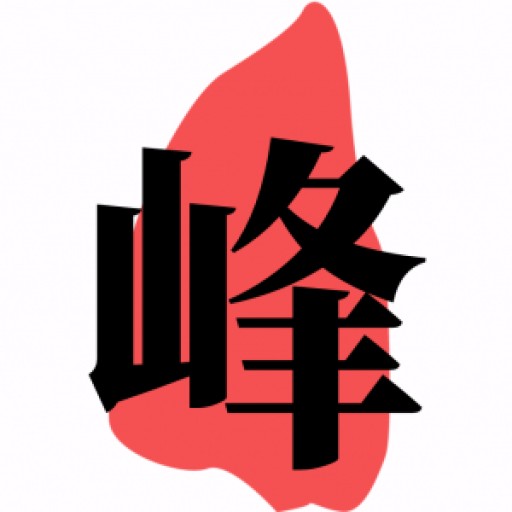The intervening period between the Western and Eastern Han dynasties witnessed the existence of the Wang Mang 新朝 for 15 years, after which Liu Xiu established the Eastern Han dynasty, an era known as the "Restoration of Emperor Guangwu". A lesser-known fact is that between Wang Mang and Liu Xiu, there were actually two other Han emperors.
In 9 AD, Wang Mang usurped the throne and established the Xinchao, after which he initiated a series of reforms known as the "Wang Mang Reforms". However, Wang Mang's bookish demeanor led to policies imbued with a profound sense of magical realism, offending virtually every social stratum within the kingdom and igniting revolts throughout the country, with the Green Forest Army and Red Eyebrow Army emerging as the two most formidable forces.
01
Towards the end of the Xinchao, chaos reigned throughout the land, and heroic figures from the Green Forest Shan area of Jingbei City, Hubei Province rallied to the cause. Given their base on Green Forest Shan, this rebel army was dubbed the "Green Forest Army", led by Wang Kuang and Wang Feng.
After Wang Mang usurped the Han dynasty, he became even more belligerent with foreign powers than the Ming dynasty, declaring war on nearly every neighboring ethnic group. However, apart from Yan You's defeat of Goguryeo (renamed Lower Goguryeo by Wang Mang), all other campaigns ended in failure, decimating the once-formidable Han military. Thus, the "One Han against Five Barbarians" era of the Han dynasty came to an end.
Following the uprising of the Green Forest Army, they continued to raid county towns despite their initial successes, fearing retaliation from government troops and remaining sheltered within Green Forest Shan. In 22 AD, an epidemic swept through Green Forest Shan, forcing the army out into the open, facing an uncertain future. To their surprise, the Xinchao troops were found to be weak and vulnerable, leading the Green Forest Army to a series of victories.
Meanwhile, the Liu Yan and Liu Xiu brothers from Nanyang, who were descended from the Western Han dynasty, seized upon the chaos to raise an army of seven to eight thousand, consisting of friends and family along with local landlords and powerful figures. They launched a campaign against Wang Mang known as the Chunling Army.
In order to strengthen the anti-Wang Mang movement, the Chunling Army joined forces with the Green Forest Army and proceeded to inflict major defeats upon the Xinchao forces at Xishui and Yuyang, culminating in the siege of Wancheng. However, as the light of victory began to dawn, a crucial question arose: who would lead the coalition of allied forces? Or, more specifically, who would ascend to the throne following the successful overthrow of the government?
02
Liu Yan, a member of the imperial family and a legendary figure, was a strong candidate for leadership. Historical records describe him as "inflexible and magnanimous, harboring great ambitions ever since Wang Mang's usurpation of the throne. He neglected his family affairs and spent his fortune to forge alliances with the courageous and the noble throughout the realm." In theory, Liu Yan would have been the undisputed choice for alliance leader. However, from the perspective of the Green Forest Army, Liu Yan's exceptional abilities rendered him an unsuitable choice, leading them to support Liu Yan's older cousin, Liu Xuan.
During the Green Forest Army's siege of Sui County, Pinglin residents Chen Mu and Liao Zhan raised an army to join the rebellion, augmenting the Green Forest Army with Pinglin troops. Liu Xuan had apparently joined Chen Mu's forces around the same time that Liu Yan began his own uprising, serving as an official in charge of community affairs. Moreover, Liu Xuan was known for his meek and retiring nature, with historical records describing him as "meek and feeble, breaking out in a cold sweat at the slightest provocation and unable to speak when called upon."
Such a timid personality would have been easily manipulated, and his Green Forest Army background made Liu Xuan the ideal candidate in the eyes of the Green Forest Army. Thus, the Green Forest Army initially conferred upon Liu Xuan the title of General of the Restoring Movement, and later elevated him to the status of emperor, with historical accounts stating that "in the second month, on the day of Xinsi, an altar was erected on the sandbanks of the Yushui River, and troops were assembled for a grand gathering. Gengshi ascended to the throne, facing south and receiving obeisances from his ministers." Within a matter of months, Liu Xuan had transformed from an obscure imperial relative into the Emperor.
Following Liu Xuan's accession, the Green Forest Army captured Wancheng and went on to secure a decisive victory at the Battle of Kunyang. Prior to advancing on Chang'an, they sought an opportunity to eliminate Liu Yan. In the first month of the first year of the Gengshi era (23 AD
所谓螳螂捕蝉黄雀在后,刘玄、刘盆子先后称帝,而远离关中是非之地的刘秀才是真正赢家。之后,刘秀在河北称帝,并联合各方力量,分化瓦解、围困赤眉军,第二年由于长安粮绝,境况困苦,而赤眉军又是山东人,思乡心切,为了摆脱困境,于是樊崇退出了长安东返。公元27年,在刘秀的追杀下,樊崇与刘盘子被迫投降。其中,樊崇投降后再次起义失败被杀,刘盘子据说得以善终。
通过刘玄、刘盘子的命运管中窥豹,刘秀能够称帝,固然与能力有关,但运气真的很好,大哥刘縯不死,刘玄没有乱来,樊崇没有反叛.......刘玄可能都不可能称帝,偏偏全都发生了,不愧是“位面之子”的运气。
参考资料:《汉书》等

